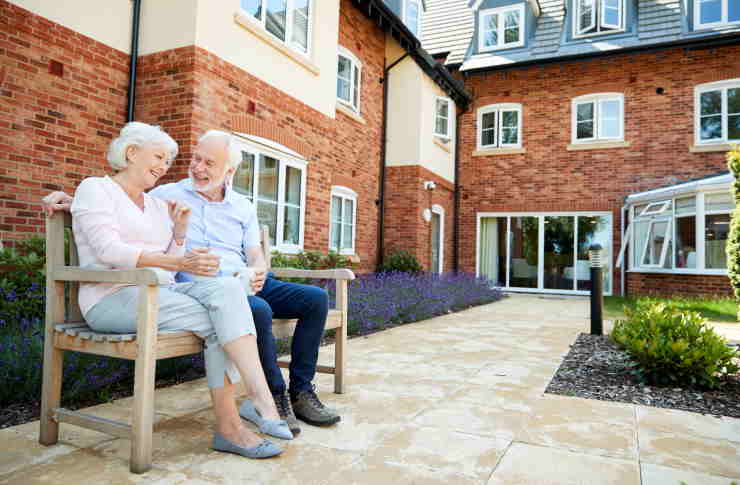Senior Apartments: A Comprehensive Guide for Elderly Housing
As the population ages, the demand for specialized housing options tailored to the needs of seniors continues to grow. Senior apartments offer a unique living arrangement designed to provide comfort, safety, and community for older adults. This article explores the concept of senior apartments, their benefits, and what to consider when searching for the right housing solution for elderly individuals or loved ones.

What amenities and services are commonly offered in senior apartment buildings?
Senior apartment buildings often provide a range of amenities and services to enhance the quality of life for their residents. Common offerings include:
-
On-site maintenance and landscaping
-
Fitness centers and exercise classes tailored for seniors
-
Community rooms for social gatherings and events
-
Transportation services for medical appointments and shopping
-
Security features such as controlled access and 24-hour emergency response systems
-
Housekeeping and laundry services (sometimes at an additional cost)
-
Meal options or community dining areas
These amenities are designed to promote independence while providing support and convenience for elderly residents.
How can seniors determine if a senior apartment is the right choice for them?
Deciding whether a senior apartment is the right housing option requires careful consideration of various factors:
-
Level of independence: Senior apartments are best suited for older adults who can live independently but desire a more supportive environment.
-
Financial considerations: Seniors should evaluate their budget and compare the costs of senior apartments to their current housing expenses.
-
Location: Proximity to family, friends, healthcare providers, and preferred amenities is crucial.
-
Social needs: Those who enjoy community engagement and social activities may find senior apartments particularly appealing.
-
Health and mobility: While senior apartments offer some accessibility features, they may not be suitable for those with significant health or mobility issues.
-
Future needs: Consider whether the apartment community can accommodate changing needs as one ages.
What are the financial considerations when choosing a senior apartment?
Understanding the financial aspects of senior apartments is crucial for making an informed decision. Here’s a breakdown of common costs and considerations:
-
Rent: Monthly rent for senior apartments can vary widely depending on location, amenities, and services offered.
-
Utilities: Some communities include utilities in the rent, while others charge separately.
-
Entrance fees: Certain communities may require a one-time entrance fee.
-
Service packages: Additional services like meals, housekeeping, or transportation may come at an extra cost.
-
Insurance: Consider the cost of renter’s insurance to protect personal belongings.
Below is a comparison table of sample senior apartment providers to give an idea of potential costs:
| Provider | Location | Monthly Rent Range | Services Included |
|---|---|---|---|
| Sunrise Senior Living | Nationwide | $3,000 - $6,000 | Meals, housekeeping, activities |
| Holiday Retirement | Nationwide | $1,800 - $4,000 | Activities, transportation |
| Brookdale Senior Living | Nationwide | $2,500 - $5,500 | Meals, housekeeping, activities |
| Atria Senior Living | Select States | $3,500 - $7,000 | Meals, housekeeping, transportation |
Prices, rates, or cost estimates mentioned in this article are based on the latest available information but may change over time. Independent research is advised before making financial decisions.
How do senior apartments promote a sense of community among elderly residents?
Senior apartments often prioritize creating a strong sense of community among residents. This is achieved through:
-
Organized social events and activities
-
Communal spaces like lounges, gardens, and game rooms
-
Group outings and field trips
-
Resident councils or committees
-
Shared meals in community dining areas
-
Intergenerational programs involving local schools or organizations
These community-building efforts help combat social isolation and promote a vibrant, engaged lifestyle for elderly residents.
What should seniors look for when touring potential senior apartment buildings?
When visiting senior apartment communities, it’s important to observe and inquire about several key aspects:
-
Accessibility features and overall building maintenance
-
Safety and security measures
-
Cleanliness of common areas and individual apartments
-
Friendliness and professionalism of staff
-
Interaction between current residents
-
Quality and variety of amenities and activities offered
-
Proximity to essential services and healthcare facilities
-
Policies regarding guests, pets, and personalizing living spaces
-
Emergency procedures and on-site medical support
By carefully evaluating these factors, seniors can make an informed decision about whether a particular senior apartment community aligns with their needs and preferences.
Senior apartments offer a valuable housing option for older adults seeking a balance between independence and community. By providing age-appropriate amenities, fostering social connections, and offering various levels of support, these specialized living arrangements can significantly enhance the quality of life for elderly residents. As with any major life decision, it’s essential to thoroughly research options, consider personal needs and preferences, and consult with family members or trusted advisors before choosing a senior apartment community.






